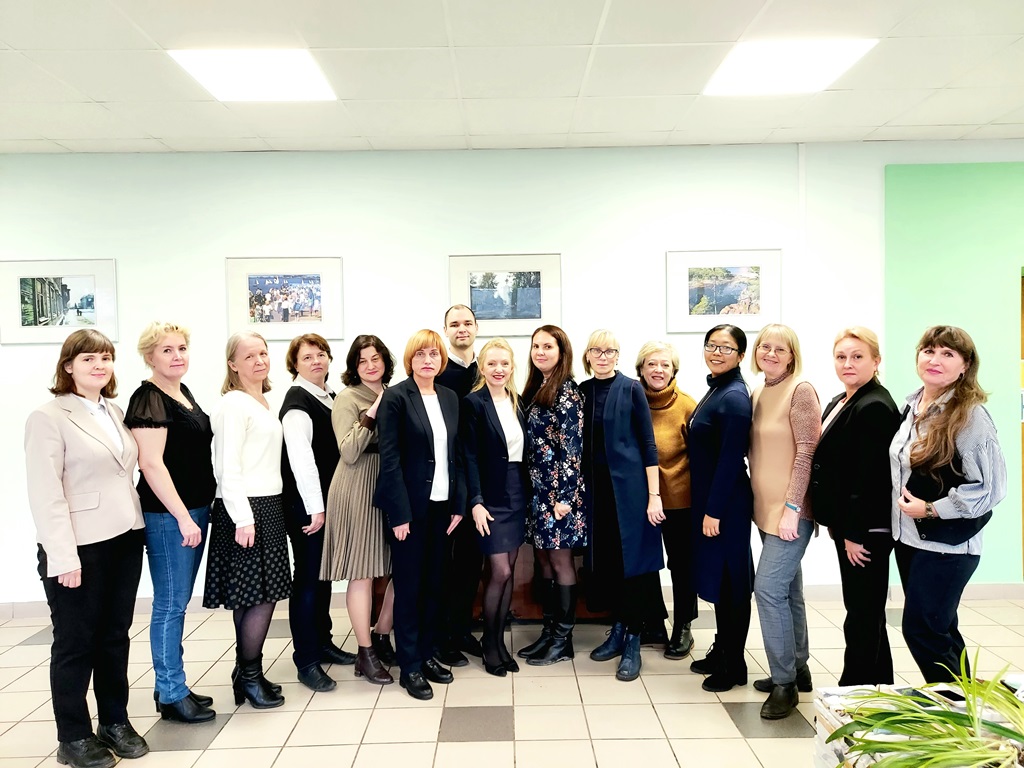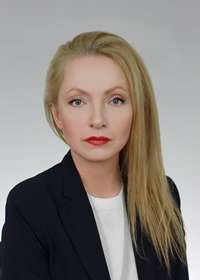ИнститутыИнститут математики, информационных и космических технологий Заочный финансово-экономический институт Институт естественных наук и биомедицины Институт комплексной безопасности Институт медико-биологических исследований Институт педагогики и психологии Институт социально-гуманитарных и политических наук Институт строительства и архитектуры Институт теоретической и прикладной химии Институт физической культуры, спорта и здоровья Институт филологии и межкультурной коммуникации Институт экономики и управления Институт энергетики и транспорта Гуманитарный институт филиала в Северодвинске Институт судостроения и морской арктической техники филиала в Северодвинске institutes |
The English Language Department in its current state has existed since January 1, 2017.
Since 2018, the department has been involved in the implementation of an educational project of multi-level education, which is of strategic importance for the entire university. A sufficient amount of analytical material has been accumulated, allowing comprehending the potential, prospects and effectiveness of the mechanism of multi-level language teaching. The staff of the department share methodological developments on the results of the project in scientific journals. The members of the department are involved in grant programmes, regularly submit applications for grants to international and Russian scientific foundations. At the moment, the department is working on several grants projects: 1) Erasmus + in cooperation with the University of Edinburgh; 2) Erasmus + with the Institute of Art, Design and Technology (Dun Laoghaire, Dublin); 3) Another important project the department is currently working in cooperation with the Department of English Philology, Nordic Languages and Language Pedagogy is Erasmus + Jean Monnet project ‘The Quality Dimension in European Education Area: Policies, Competences and Challenges (QdiEEAPCC)’. The grant proposal was supported in November 2021; 4) The department staff are also engaged in the development of new courses with the support of the V. Potanin scientific foundation. The structure of the department includes the British Center headed by Valentina Georgievna Golysheva. The center is visited by a huge number of guests from Great Britain, Ireland, USA, Sweden, Norway and other countries of Europe and the world. The Center systematically studies the history of Arctic convoys in close cooperation with the Belfast Association (London). The department works with students from the entire university and is not only engaged in educational activities directly related to the profile of the department, but also organises events popularising the study of the English language at the regional and all-Russian levels. TRADITIONSAll-Russian "Creative English: Art Competition" Since 2013, the English Language Department has been holding a creative competition among students of non-linguistic areas of training. Participation in the competition gives students the opportunity to combine their creativity with the practice of using the English language. The nominations are very different - writing an essay, creating a video, a crossword puzzle or a poster. Some nominations involve individual participation while in others the participants work as a team. Every year the competition is held under the new topic. For instance, in 2019-2020, in the year of the 100 anniversary of the northern writer F.A. Abramov, all nominations were dedicated to his work, in 2020-2021 it was held under the slogan. «Go Digital». The geography of the competition is expanding every year. Traditionally, the competition is attended by students from universities in Yekaterinburg, Ivanov, Murmansk, Tomsk, Petrozavodsk, Saransk, Yoshkar-Ola. Starting from 2021-2022, the competition goes international. Another important regular event held by the department on a regular basis (every spring semester) is the regional intellectual contest in English “Spring Challenge”. The target group of the event is students of all directions of studies. MULTI-LEVEL EDUCATION Since 2018, the English Language Department has been implementing the concept of multi-level teaching of a foreign language. The idea of multi-level education allows students to be divided into groups depending on the level of foreign language proficiency, which gives each student the opportunity to enhance their competence, based on their capabilities and the existing knowledge base. The students of the highest level have the opportunity to prepare for and pass the Cambridge B2 First (FCE) and C1 Advanced (CAE) exams, which are important for further participation in student exchange programmes, internships and professional development in the future. Based on the concept of multi-level training, a detailed subject syllabus has been developed, including goals, objectives, forms of work, assessment criteria. The positive aspect of the programme is the relevance of the topics declared in the programme, their universal character, and a reliable assessment of the knowledge level. Multi-level training assumes entrance and final testing, thanks to which the progress in training is clearly visible by type of skills. The students are interested in keeping track of their own progress. Using a point-rating system is also an advantage, which helps to increase students' motivation to learn English. Throughout the course, students perform a great number of creative assignments (individual and group presentations, for example, on the topic "Our University", interviews, for example, "Job interview", discussions). In the process of preparation, students learn a lot of new and interesting things. As a result of the programme’s implementation, a significant increase in the level of proficiency in a foreign language is observed in every group, which is evidenced by the results of the final testing. The content of the modules is constantly updated to meet the latest requirements. The English Language Department staff are in constant creative search. Methodological seminars are regularly held at the department. These seminars are the platform for summing up the results of the multi-level education concept implementation, here colleagues put forward proposals and share experience. |


 At present, Nataliya Nikolaevna Beloshitskaya is in charge of the department. The academic and research staff of the department include 14 Candidates of Sciences, 8 of them having the academic title of associate professor. Currently, two members of the department are studying for a Master’s degree in Applied Linguistics. Three department members (Nataliya Beloshitskaya, Svetlana Zhemchugova and Yulia Drakunova) are experts of the Cambridge exams. The English Language Department academic staff coordinate methodological support of schools in Arkhangelsk and Arkhangelsk region by arranging and delivering advanced training courses, master classes, public lectures, 5 members are experts of the Unified State Examination.
At present, Nataliya Nikolaevna Beloshitskaya is in charge of the department. The academic and research staff of the department include 14 Candidates of Sciences, 8 of them having the academic title of associate professor. Currently, two members of the department are studying for a Master’s degree in Applied Linguistics. Three department members (Nataliya Beloshitskaya, Svetlana Zhemchugova and Yulia Drakunova) are experts of the Cambridge exams. The English Language Department academic staff coordinate methodological support of schools in Arkhangelsk and Arkhangelsk region by arranging and delivering advanced training courses, master classes, public lectures, 5 members are experts of the Unified State Examination.